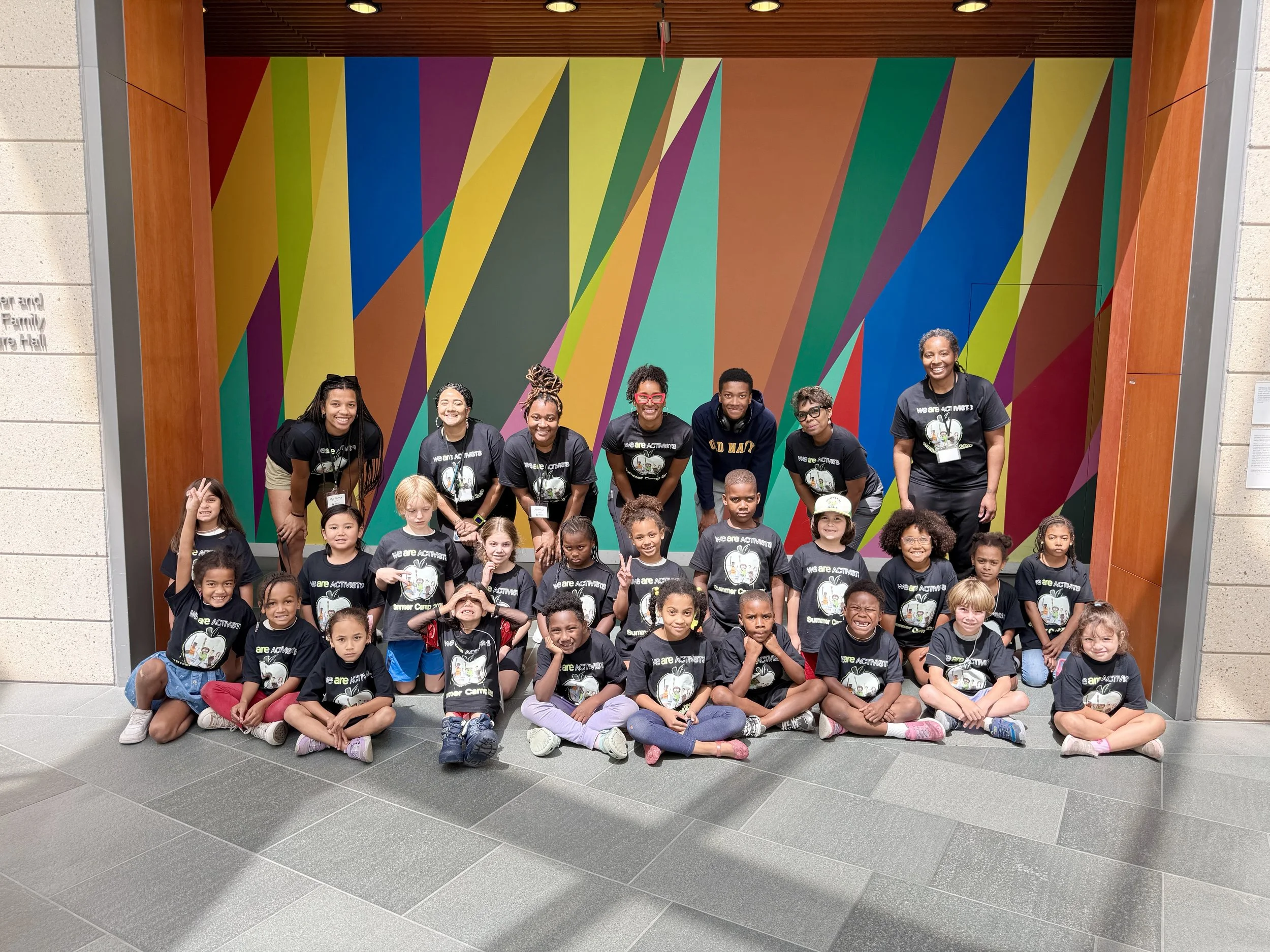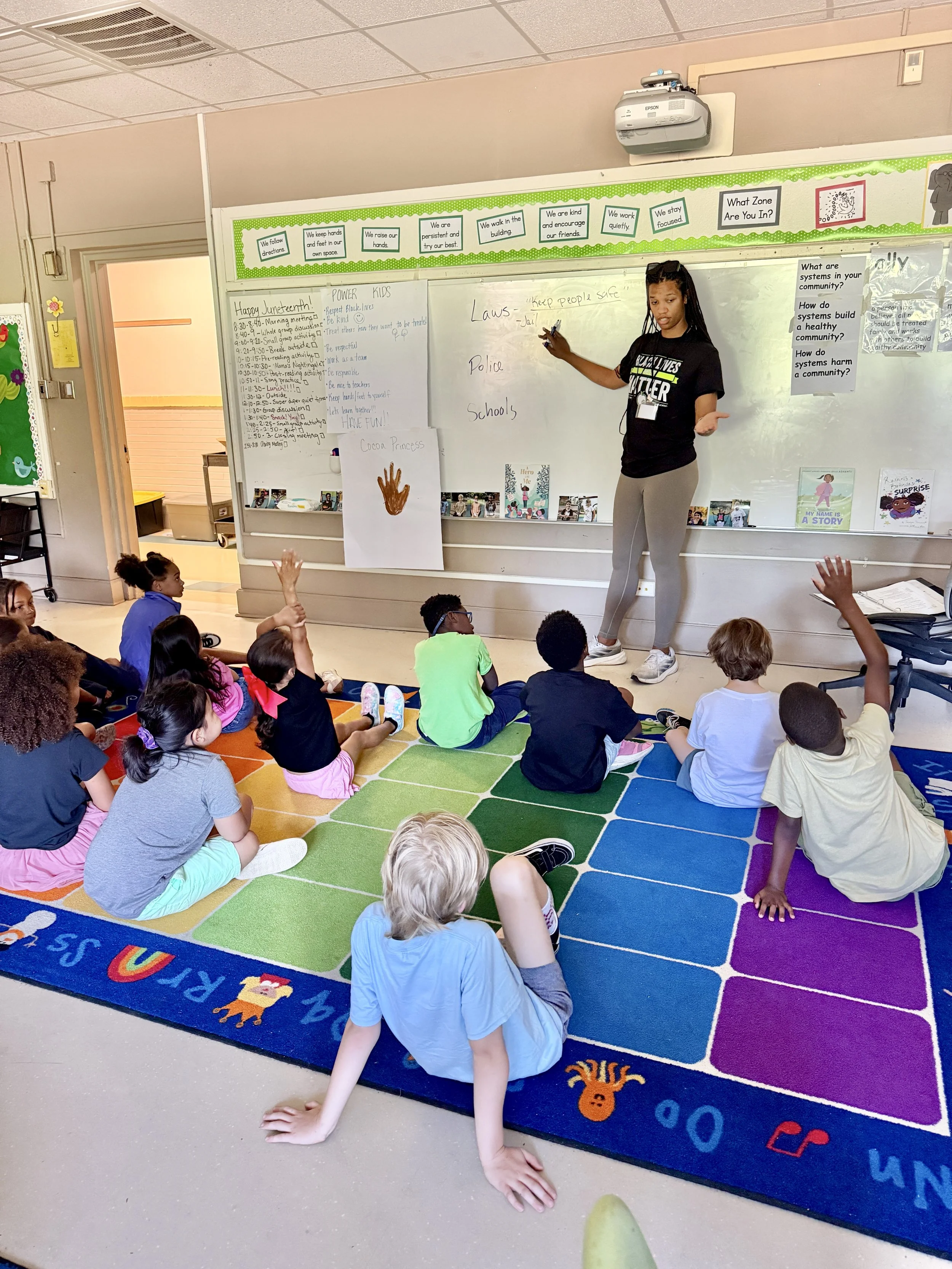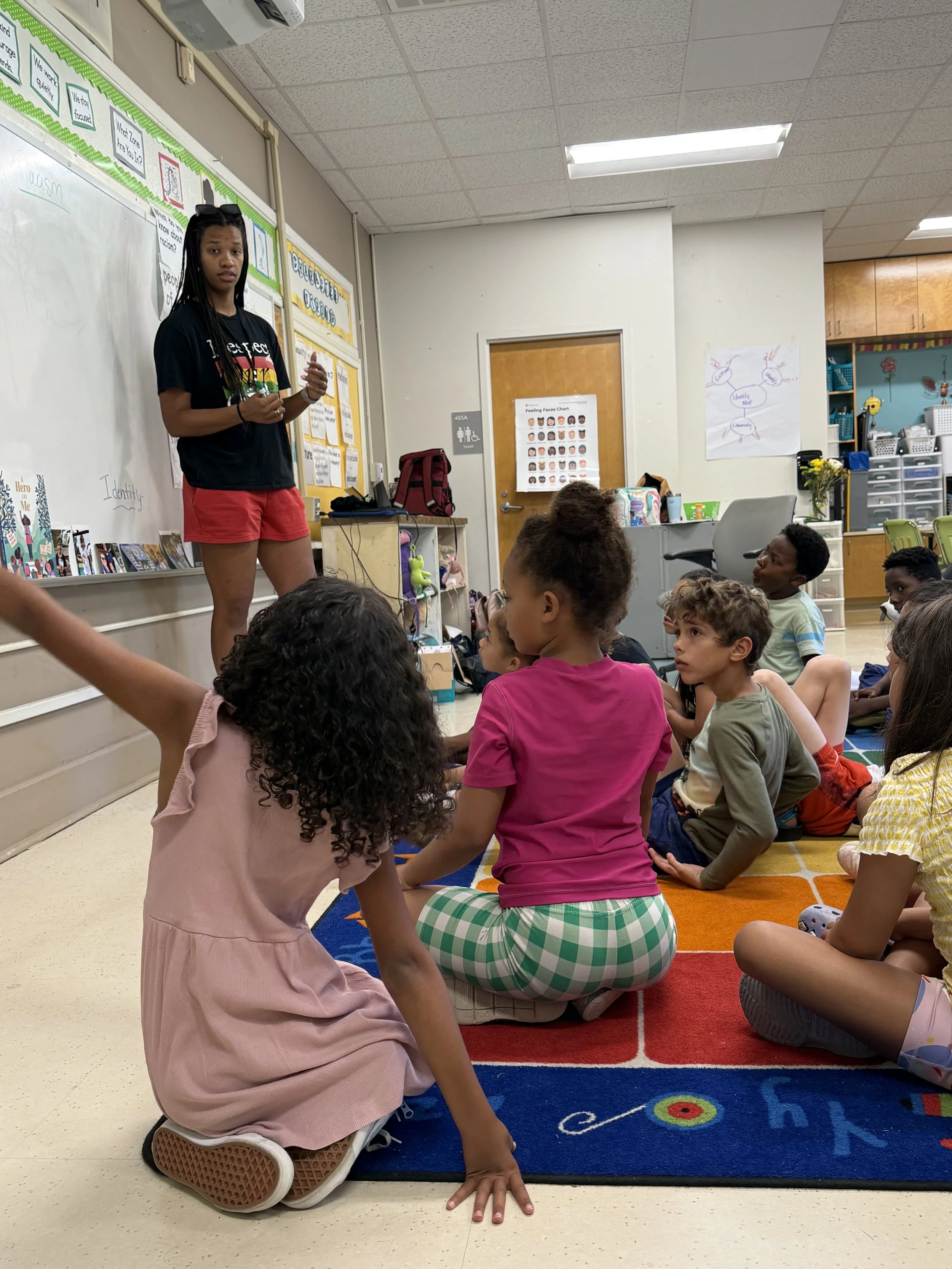Camp Reflections: 5 Things I Didn’t Expect as a First-Time we are Camp Facilitator
Myriama Smith Traore, Summer Camp Facilitator






As a high school English teacher, I was skeptical about my ability to talk to elementary schoolers about antiracist practices. I was nervous about discussing such heavy topics with such young children. I had the same questions I imagine many people do: How are 5–7-year-olds supposed to grasp topics like the school-to-prison pipeline and white supremacy? Are they even old enough to understand race and racism? How can we approach these conversations without making white children feel uncomfortable? I learned 5 things at camp that helped me arrive at a simple conclusion: Children are never too young to learn about antiracism. These conversations will be uncomfortable, and that’s okay.
Talking about race isn’t scary. It’s joyous!
At we are Summer Camps, we explored topics I didn’t personally learn about until college. On the first day, I worried how the campers would respond to discussions around race and racism. I expected some would shut down or avoid deeper conversations about identity. I couldn’t have been more wrong. On Day 2, we began with our camp cheer. I watched in awe as the quietest campers came out of their shells, smiling and shouting: “My name is [insert name], I like [insert activity], and I’m an activist!” Then they danced like they were having the time of their lives. That energy carried into every day. Yes, we talked about systemic racism. But we also laughed, danced, created, and built community. Joy and justice are not opposites. They go hand in hand.
2. White campers might be uncomfortable. That’s okay.
Talking about identity can be challenging for any child, especially white children who may find themselves in the minority for the first time. These feelings can cause discomfort or even moments of lashing out. And you know what? That’s okay. We Are Camp isn’t just for children of color. It’s also a space for white campers to explore the privilege tied to their identity—and to be gently challenged to reflect, listen, and grow.
At camp, some white campers struggled with how they spoke to their Black and brown peers. But they weren’t punished, called out, or ostracized. Instead, they were given the space to reflect, reconcile, and try again. And they did. By the end of camp, one of our white campers who had been visibly uncomfortable during the week tearfully said: “I don’t want to be racist anymore.” Discomfort isn’t the enemy. Sometimes it’s the doorway to real growth!
3. we are Camp isn’t just for campers. It’s for parents, too.
Each day, campers took home a book we’d read together at camp. One day, I asked a camper if she had shown her mom the book she brought home. She responded: “I show my mom every book right away!”
begins.
4. we are camp isn’t just for campers. It’s for facilitators, too.
I think about We Are Camp every day. In today’s climate, it’s easy to shy away from conversations about race, especially as a young professional. But in those moments of hesitation, I remember campers screaming at the top of their lungs: “¡Sí se puede!” If elementary schoolers can dream of a world where diversity is celebrated instead of silenced, then I will fight for it, too.We Are Camp didn’t just give me hope for the future. It gave me strength to have these conversations now.
5. Our children are ready to be changemakers. Let them!
We ended our camp experience with a protest march around our building. Campers chose the topics they cared about, created posters, and proudly displayed their voices. They came running to us with their creations: “Look! My poster says ‘Black Lives Matter’ because sometimes people don’t let me play with them because I’m Black, and I should get to play too.” “I’m making my poster in Spanish because that’s my first language!”
Children are ready to celebrate who they are. They’re ready to talk about what they’ve experienced. And they’re perfectly capable of engaging in justice work. Our role as adults is not to shield them from these conversations. Our role is to give them the tools and the language to navigate them. Then we step back, cheer them on, and watch them fly.These books didn’t just help kids learn about identity; they gave parents tools to continue the conversation at home. The work doesn’t stop when the camp day ends. In fact, that’s where it often
